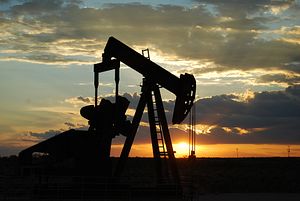The Rebalance author Mercy Kuo regularly engages subject-matter experts, policy practitioners and strategic thinkers across the globe for their diverse insights into the U.S. rebalance to Asia. This conversation with Yassin K. Fawaz – Chief Executive Officer of Raddington Group, a global strategies and risk management firm in Washington D.C., and advisor to politicians, diplomats, business executives, and government officials on international affairs – is the 62nd in “The Rebalance Insight Series.”
Identify the domestic political risks of Iran’s oil market for Asian oil investors.
Even with Iran’s new model oil and gas contract, which replaced the previous buyback contracts less favorable to foreign players, many questions remain. Foremost among them are Iran’s presidential elections, which will take place in May 2017. President Hassan Rouhani will have to convince a struggling populace that the pace of sanctions relief is increasing. Yet the moderate cleric has thus far had a hard time doing so as banking restrictions have not been lifted and inflation has proved difficult to tackle due to the ongoing difficulty in securing imports. If a conservative candidate skeptical of Iran’s rapprochement with the West emerges victorious, such as former president Mahmoud Ahmadinejad, one of their first targets could be mechanisms like the revised oil contract, which some opposition lawmakers claim cede too much sovereignty.
In addition, foreign investors still face many struggles in Iran, from opaque ownership structures of domestic partners to government meddling, to rampant corruption. Asian capital owners also have many options, particularly given low asset prices and a plethora of LNG options.
Assess how Asian majors view Iran’s competitors – Saudi Arabia, Kuwait, et al.
Asian downstream players have never been particularly picky with sourcing oil and gas products, and many successfully lobbied the United States for sanctions waivers covering oil imports, especially Korean and Japanese firms. At the same time, they have historically been more price-sensitive than their Western competitors, which explains the buzz of activity on crude spot markets in recent years. It also explains why they jumped at the opportunity to negotiate discounted contracts with the Saudis, Kuwaitis, and Iraqis during the ongoing oil glut as Arab states attempted to defend market share. This has been abetted by shrewd moves by Aramco to increase storage capacity in Japan and China.
Asian explorers and producers have long eyed Iran’s oil fields as a prime target, especially as Iran needs technology to counter its reservoirs’ low rate of recovery. Some of Tehran’s favored Asian partners in the past include Malaysia’s Petronas and China’s CNOOC. However, Iran will more likely try to attract large contracts with European players in a bid to encourage further Western investment.
Explain the role of Chinese and Russian oil companies in developing Iran’s oil sector.
Chinese firms – mainly CNPC and Sinopec – are essentially the only foreign companies currently doing major business in Iran’s oil and gas fields, and right now that is mostly limited to field development. Iran will also rely on Chinese financing to complete the long-awaited gas pipeline to Pakistan. As memoranda of understanding turn into contracts, expect to see Gazprom and Lukoil added to that list. Chinese and Russian players will undoubtedly have competition from the likes of Total, Eni, Shell, BP, and others, but they are politically and economically well-placed to secure a number of deals, especially as Iran’s new model contract allows for foreign involvement in fields for two decades. And when it comes to oil and gas services, they are already inking contracts with their Iranian counterparts.
What are the top three emerging trends in global energy security?
Infrastructure deficits – Reduced oil prices have also reduced global energy investment by record levels, including in pipelines and drilling ships. This may soon be cushioned by an increased bear market buying spree spurred on by future privatization in Aramco, Rosneft, KazMunaiGasvia, and other state-owned players.
Increasing cost-effectiveness of renewables – The latest Carbon Tracker Initiative’s Levelized Cost of Electricity figures show that “the tide has turned” and even unsubsidized wind and solar projects are more profitable than many types of coal and gas facilities in the long run, given current trends in regulation.
How to manage energy sales from non-state actors? – General Khalifa Haftar’s recent capture of Libyan oil fields from militias allied with the government, as well as sales of Syrian and Iraqi crude by ISIS, will test how the international community deals with non-sanctioned oil and gas sales.
For the next U.S. president, what is the leadership role of the United States in managing competition and cooperation in Iran’s oil industry?
The incoming U.S. administration must balance appearing tough on Iran and willing to punish any breach of the nuclear deal with the need for Tehran to experience real sanctions relief in order to keep the current moderate/reformist government in power. President Clinton or President Trump will also look to ensure that Tehran acts as a responsible player in OPEC through partly mending fences with the Saudis, while at the same time reining in the Revolutionary Guards from raising tensions in the Gulf.
The Revolutionary Guards, perhaps even more so than Supreme Leader Ali Khamenei and the various state supreme councils who report to him, stand to lose the most from sanctions relief and are responsible for most of the country’s provocative maritime acts. They acted as unofficial middlemen during the sanctions regime, controlling the flow of key imports and amassing a healthy profit, which in turn bolstered the numerous industries which they directly or indirectly control throughout the Iranian economy, such as construction giant Khatam al Anbia and the Iran Aircraft Manufacturing Company. While a number of their affiliates will be de-listed within a decade by the EU, they remain sanctioned by the U.S. and may hold the key to determining the ultimate success of economic and even political liberalization in Iran.

































